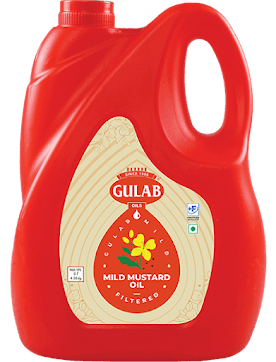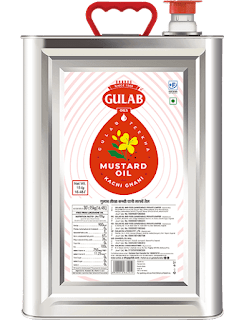These days people are getting attracted towards Refined Oil so is with using the Refined Mustard Oil. There are some specific Guidelines of standard set by DFS for such Oils.
Specification for Refined Mustard Oil Set by DFS (Defence Food Specifications) In 2016 Which Are:
Quality:
The solvent extracted oil shall be obtained from oleaginous material using solvent hexane not more than 5.0 ppm in solvent extracted oils conforming to BIS Specification No IS: 3470-1966.
Packing used for Refined Mustard Oil:
Tins: The Refined Mustard Oil shall be packed in new 15 Kg square tins conforming to BIS Specification No IS:10325-2000 (reaffirmed in 2005) for packing Ghee.
Poly Pouches:
The Refined Mustard Oil shall be packed in one-litre poly pouches 2Ltr & 5Ltr HDPE Jars conforming to Appx "G" to this specification.
Corrugated Fibreboard Cartons:
10 such poly pouches/2Ltr & 5Ltr HDPE Jars shall be further packed in a CFC conforming to Appx "K" & appx ‘L’ respectively to this specification.
Pungency Testing:
DFS also includes pungency testing to assess the sharpness or spiciness of mustard oil. This testing ensures that the oil is not excessively pungent, making it suitable for consumption.
Erucic Acid Content:
DFS sets limits on the maximum permissible level of erucic acid in mustard oil. Erucic acid is a fatty acid found in certain oils, and excessive consumption may have adverse effects on health. DFS specifies that mustard oil must have erucic acid content not exceeding the prescribed limit.
Health Benefits of Mustard Oil:
Cardiovascular Health:
These fats help reduce bad cholesterol levels (LDL cholesterol) in the blood, thus promoting cardiovascular health. Regular consumption of mustard oil in moderation may contribute to a reduced risk of heart disease and related conditions.
Anti-Inflammatory Properties:
Mustard oil contains compounds such as selenium and magnesium, which possess anti-inflammatory properties. These properties may help alleviate inflammation in the body and provide relief from conditions like arthritis and joint pain.
Rich in Omega-3 Fatty Acids:
Mustard oil is a good source of omega-3 fatty acids, particularly alpha-linolenic acid (ALA). Omega-3 fatty acids are essential for brain health, cognitive function, and reducing the risk of chronic diseases.
Antimicrobial and Antifungal Effects:
Mustard oil has natural antimicrobial and antifungal properties, making it effective in combating certain infections and skin conditions caused by bacteria and fungi.
Skin and Hair Care:
Due to its moisturizing and nourishing properties, mustard oil is often used in skincare and hair care routines. It helps keep the skin hydrated, reduces dryness, and promotes healthy hair growth.
Improves Appetite and Digestion:
Mustard oil has been traditionally used as a digestive aid. It stimulates the secretion of digestive juices and bile, thus improving appetite and digestion.
Conclusion:
Mustard oil offers a myriad of health benefits, making it a valuable addition to our diets and daily routines. Its heart-healthy fats, anti-inflammatory properties, and omega-3 content contribute to overall well-being. Additionally, its antimicrobial effects, nourishing properties for skin and hair, and digestive benefits make it a versatile natural remedy. It is important to consume mustard oil in moderation and ensure that it adheres to DFS guidelines set by regulatory authorities like FSSAI for consumer safety. Embracing the health benefits of mustard oil, while complying with DFS guidelines, allows us to savor its unique flavor and harness its potential as a healthful elixir in our quest for a balanced and nourished life.
For more information: https://www.gulaboils.com/
View Source:- https://gulaboils20.weebly.com/blog/mustard-oil-benefits-and-refined-mustard-oil-specifications-set-by-dfs


Comments
Post a Comment